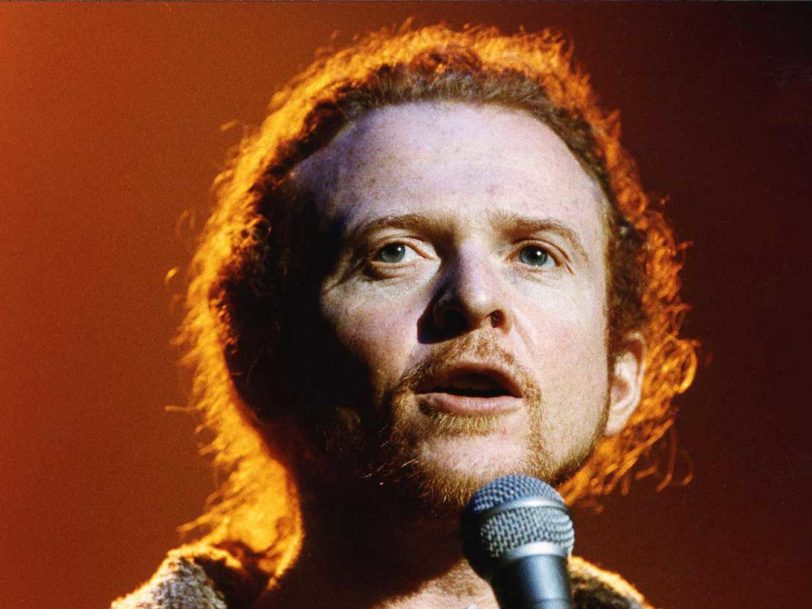As the frontman for Simply Red, Mick Hucknall has enjoyed an impressively consistent career as an R&B/soul artist in his own right. With a voice like honey and flashes of funk-tinged grit, Hucknall straddles genres as wide as jazz, funk, soul and even reggae, and has worked hard to transcend his beginnings as an impoverished Manchester youth, establishing himself as one of the greatest blue-eyed soul singers of all time.
It’s well known that Hucknall had a troubled upbringing pained by family separation. Less obvious, however, is that he started out as a punk-inspired frontman who longed to convey his love of 70s soul to the world. When he found his true voice as Simply Red’s silky-voiced paramour in the 80s, Hucknall reinvigorated British music and proved it was possible for a white artist to marry the suave and sophisticated roots of Black R&B with the sleek sensibilities of mainstream pop. Here’s how he harnessed soul-inspired sophistry to defy all odds on his path to the stars…
Listen to the best of Simply Red here.
Sad Old Red: A Difficult Childhood
Born on 8 June 1960 in Manchester, Mick Hucknall grew up in the working-class suburb of Denton as the son of a barber, Reg, and hairdresser, Maureen. After his mother walked out and abandoned the family when he was just a toddler, the young Hucknall was left in his father’s care. Scraping by in a single-parent household, Mick was a bright and charismatic flame-haired boy, though the lack of maternal influence would eventually add fuel to his creative fire.
Emerging from this family trauma, Hucknall’s interest in music began at a young age as he latched onto The Beatles and sang I Want To Hold Your Hand at a family wedding at the age of six. Showing all the signs of a soprano voice, singing was already giving Mick an outlet to channel his emotional pain. “I was obviously born into it,” Hucknall would later say. “I was guided into singing. It was extraordinary, but there you go.”
By the age of 11, as a pupil at Audenshaw Grammar School, Mick took further knocks from kids who picked on him for his appearance. “I became very inward-looking,” Hucknall recalled. “I felt ugly, I had no self-confidence, I was an easy target to be bullied. And red hair as well, my God! It multiplies it by ten.” Perhaps as a result, his own behaviour at school started to slip, and it wasn’t long before Mick found himself relegated to the bottom of his class.
By his early teens, Hucknall had gained a reputation as a troublemaker. Remembered by his schoolmates for getting into fights, a teenage Mick would bum cigarettes and blow smoke into the slate-grey skies of Manchester with a gang of juvenile waifs and strays. In a world of bingo halls and sticky-floored working-men’s clubs, it might have seemed as if there was no future to look forward to. Luckily for Mick, he wasn’t alone in thinking that…
Voice In The Dark: Mick Hucknall’s Punk Origins
The punk rock revolution turned Mick Hucknall’s world on its head courtesy of a now-legendary Sex Pistols gig at Manchester Free Trade Hall on 20 July 1976. As a 16-year-old art-college student, Hucknall was the perfect age for punk’s rebellious call to arms. “The person I was relating to was John Lydon,” he said. “The whole thing was screaming at older authority, screaming at my experiences at school.”
Mick’s musical interests had been bubbling away long before punk burst onto the scene. He’d mostly enjoyed Trojan reggae, Northern soul and a wide array of Motown and Stax records, but he he’d also been into Led Zeppelin and The Rolling Stones. Punk, however, was altogether more galvanising, and greatly inspired Mick with its do-it-yourself doctrine.
Joining forces with friend and guitarist Neil Moss, Hucknall fully embraced punk’s amateurish credo. In time, the boys formed a scrappy indie guitar band, The Frantic Elevators, and took inspiration from Bolton-based punks Buzzcocks by independently releasing their debut single, Voice In The Dark, in 1979. The band even went on to support post-punk pioneers and John Peel favourites The Fall. In fact, Peel himself was so fond of the Elevators, he regularly played their single Searching For The Only One upon its release in 1981.




